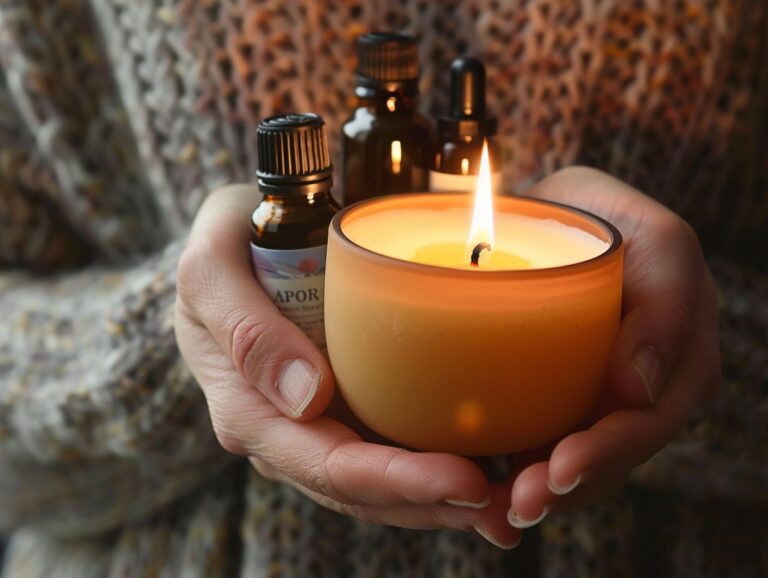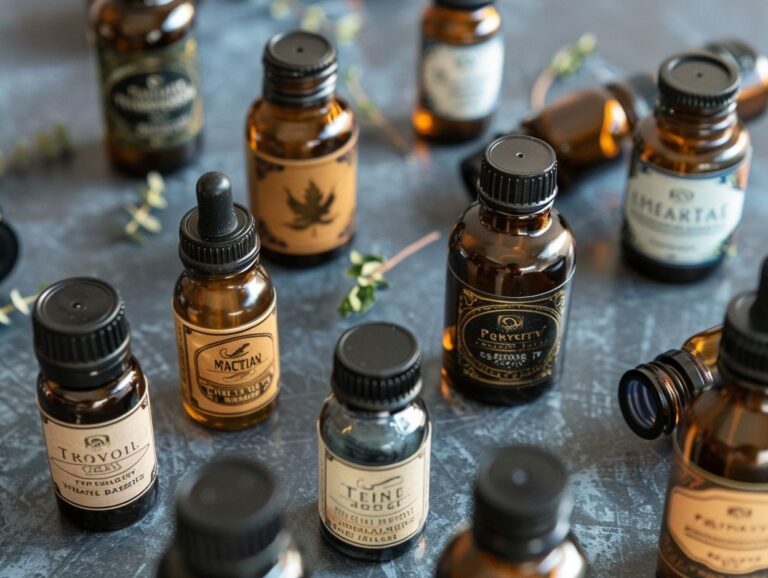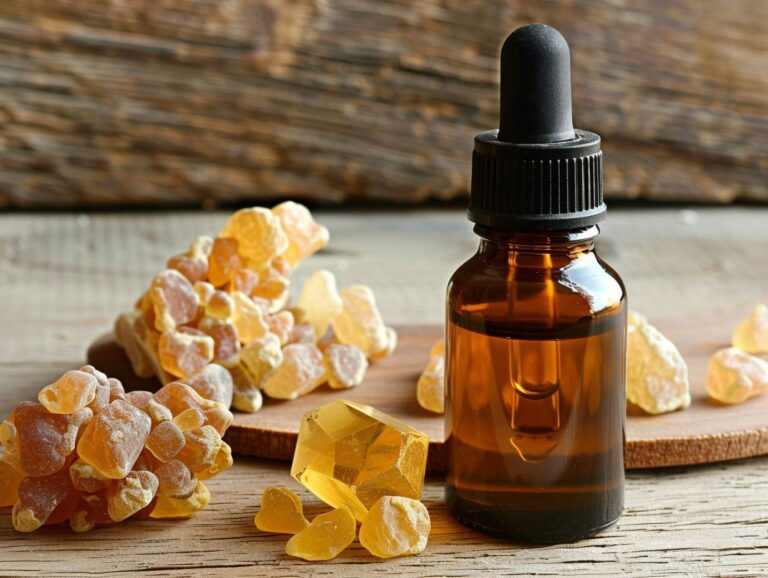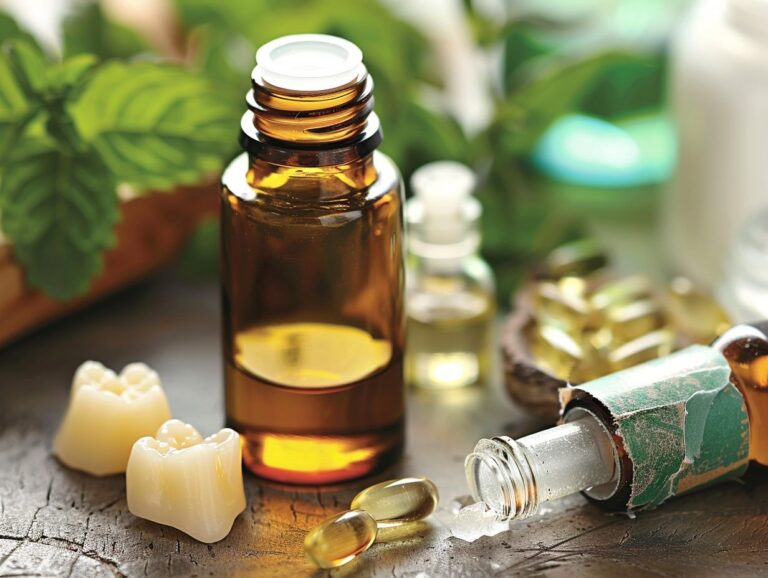How Much is Essential Oil Distiller
Curious about essential oil distillers and how they work? Let’s dive into the world of essential oil distillation, exploring the different types of distillers available and the benefits they offer. We will also discuss factors that affect the price of a distiller, as well as the average cost you can expect to pay.
If you’re interested in purchasing an essential oil distiller, we’ll also share where you can find them. So, sit back, relax, and let’s explore the wonderful world of essential oil distillers together.
Key Takeaways:
What Is An Essential Oil Distiller?
An essential oil distiller is a device used to extract essential oils from plant materials through the process of distillation. It typically consists of a distillation column, condenser, and a vessel to collect the distilled oils and hydrosol.
Distillation is a crucial technique in essential oil production as it allows for the separation of volatile compounds from the plant material to create potent oils.
Copper plays a vital role in the distillation process as it helps with heat conductivity and removes sulfur-based compounds.
Steam distillation is a popular method used in essential oil distillers, where steam passes through the plant material, releasing the aromatic molecules which are then condensed into oils. This method ensures high-quality and pure essential oils.
How Does An Essential Oil Distiller Work?
An essential oil distiller works by heating plant materials in a distillation chamber to release the essential oils and other aromatic compounds present in the raw material. The steam carries these compounds to a condenser, where they are cooled and collected as essential oils and hydrosol.
Within the distillation chamber, the plant material is subjected to carefully controlled heat, allowing the essential oils to vaporize without damaging their delicate aromatic components. This process is crucial for extracting pure essential oils from plants like lavender and rosemary, known for their therapeutic properties. The distillation equipment, including the boiler, condenser, and separator, plays a significant role in ensuring efficient extraction. Distillers often customize their equipment based on the specific properties of the plants they are distilling, maximizing the yield and quality of the essential oils.
What Are The Different Types Of Essential Oil Distillers?
There are several types of essential oil distillers available, including traditional copper Alembic stills favored by Artisans for their handmade qualities, modern stainless steel distillers known for their durability, and specialized glass essenciers for small-batch distillations.
Copper Alembic stills, steeped in tradition, are not only popular for their artisanal charm but also their ability to impart unique flavors and aromas to the distilled oils, making them a top choice for craft distillers.
On the other hand, stainless steel models, with their sleek and robust design, offer excellent durability and efficiency, ideal for high-volume production and industrial settings.
Glass essenciers, on the contrary, cater to those seeking a more delicate and precise distillation process, perfect for extracting oils from fragile botanicals without any risk of contamination from metals or other materials.
Each type of distiller brings its own set of advantages and characteristics to the table, catering to the diverse needs of oil producers and enthusiasts alike.
What Are The Benefits Of Using An Essential Oil Distiller?
Using an essential oil distiller offers numerous benefits such as producing high-quality essential oils, hydrosols, and plant-based remedies. It allows for customization and control over the distillation process, leading to unique oils for perfumes and therapeutic remedies.
The advantage of an essential oil distiller lies in the ability to extract pure and potent essences from a variety of botanical sources. This enables individuals to harness the therapeutic properties of different plants without any additives or synthetic ingredients, ensuring a natural and holistic approach to wellness. The distillation process also provides the freedom to experiment with various plant combinations, resulting in custom blends tailored to specific needs and preferences. This creative control allows for the creation of signature scents, personalized remedies, and unique products that cater to individual tastes and requirements.
Produces High Quality Essential Oils
One of the primary benefits of an essential oil distiller is its ability to produce high-quality oils with a potent aroma and therapeutic properties from raw plant materials. This homemade process ensures a pure and authentic essence.
When using an essential oil distiller, the quality of the oil is heavily influenced by the choice of raw materials. Opting for fresh, high-grade plant sources can significantly enhance the final product. The distillation process of these raw materials in the essential oil distiller results in oils that retain the unique characteristics of the plants they originate from, capturing their essence and beneficial properties.
Allows for Customization and Control
Essential oil distillers provide users with the flexibility to customize the distillation process based on their preferences and needs. The handmade nature of the distillation kits allows for a hands-on approach to crafting unique essential oils using quality materials.
When engaging in the process of distillation, users can take control of factors such as temperature, steam flow, and duration, tailoring each batch of essential oil to their desired specifications. This level of customization enables individuals to create blends that reflect their personal preferences and cater to specific therapeutic or aromatic goals.
The craftsmanship involved in producing essential oils through distillation is an art form that requires attention to detail and a deep understanding of botanicals. The choice of materials, from the type of still to the quality of plant matter used, profoundly impacts the resulting oil’s purity and fragrance.
By investing in high-quality distillation equipment, users ensure that their oils are free from contaminants and retain the full spectrum of beneficial compounds present in the plant material. This commitment to excellence in the distillation process ultimately translates into potent and aromatic essential oils that deliver the intended therapeutic benefits.
Cost-effective

The process of using an essential oil distiller involves the extraction of potent oils from plants through careful application of heat and steam, ensuring a concentrated and pure end product.
The efficiency of distillation sets in extracting essential oils means that only a small amount of plant material is needed for each batch, making it a sustainable and cost-effective method.
The availability of distillation sets in various sizes allows for flexibility in production, accommodating both small-scale and larger operations with ease.
What Factors Affect The Price Of An Essential Oil Distiller?
Several factors influence the price of an essential oil distiller, including the size and capacity of the distillation unit, the material used in its construction, the complexity of the distillation process, and any additional features or accessories included.
When considering the size and capacity of the distillation unit, larger distillers generally come with a higher price tag, reflecting the increased materials and manufacturing costs involved. The material quality is a crucial aspect affecting pricing – premium-grade stainless steel distillers, known for their durability and resistance to corrosion, tend to be more expensive than those made from lower-quality materials.
The intricacies of the distillation process play a significant role in determining the final cost of the distiller. Distillers equipped with advanced technology, precise temperature control, and automation features are often priced higher due to the engineering and components required.
Size and Capacity
The size and capacity of an essential oil distiller play a significant role in determining its price. Larger units with higher capacities typically yield larger quantities of essential oils per distillation set, which can affect the overall cost.
The size of the distiller influences the efficiency and production output, impacting the economic feasibility of essential oil production. When investing in an essential oil distiller, understanding the balance between capacity and cost is crucial. Larger distillers may require a higher initial investment, yet they can lead to cost savings in the long run due to increased yield efficiency, streamlining the production process.
Material Used
The material used in the construction of an essential oil distiller is a key factor in its pricing. Stainless steel distillers are known for their durability and resistance to corrosion, making them a popular choice for distillation equipment.
Stainless steel is not only sturdy but also has hygienic properties, crucial for maintaining the purity of the distilled oils. Its non-reactive nature ensures that the essential oils maintain their quality throughout the distillation process, without being tainted by any metal residues. Moreover, stainless steel is easy to clean and does not absorb odors, ensuring that each batch of essential oil is uncontaminated and pure.
Brand and Reputation
The reputation of the brand and the manufacturer’s expertise in essential oil distillation can influence the price of the distiller. Established Essential Oil Companies in the US are known for their quality distillation processes and reliable distillers.
Customers often gravitate towards renowned Essential Oil Companies due to the assurance of top-notch products and the latest distillation technology they incorporate. The expertise acquired by these companies over the years reflects in the efficiency and durability of their distillers.
The reputation these brands hold in the industry adds a premium to their products, making the investment in their essential oil distillers not only a practical choice but also a mark of quality.
Additional Features
Essential oil distillers with additional features such as built-in FAQ guides, advanced distillation equipment, and options for specific plant distillations like peppermint may command a higher price due to their enhanced functionalities and specialized capabilities.
These additional features not only enhance the overall efficiency of the distillation process but also cater to the specific needs of users, making the distillation experience more convenient and effective. With built-in FAQ guides, users can easily access essential information, troubleshooting tips, and maintenance instructions, adding value and ease of use to the distiller.
The incorporation of advanced distillation equipment ensures precision, consistency, and optimal extraction of essential oils, contributing to the premium pricing of the distiller.
Plant-specific distillation options, like peppermint, allow users to extract oils from particular plants with specialized settings, resulting in high-quality and potent extracts that justify the heightened cost of the distillation unit.
What Is The Average Cost Of An Essential Oil Distiller?
The average cost of an essential oil distiller varies based on the size and material used. Small home distillers made of stainless steel with a simple condenser can be found for under $100, while larger homemade distillers can cost over $500 depending on capacity and features.
When investing in a small stainless steel distiller with a basic condenser, you can opt for models that range from the economical end, usually priced between $50 to $100, offering basic functionalities for beginners or hobbyists. These compact units are perfect for experimenting with essential oil extraction at home without breaking the bank. On the other hand, if you are looking for a larger homemade distiller, equipped with advanced features and a higher capacity, you may need to allocate a budget exceeding $500.
Small Home Distillers (Under $100)

Small home distillers priced under $100 are ideal for beginners and DIY enthusiasts. These kits typically have a smaller yield per distillation set but are cost-effective and efficient for producing essential oils at home.
Due to their compact size and user-friendly design, small home distillers are perfect for those just starting out in the art of distillation. They require minimal water usage compared to larger models, making them eco-friendly and cost-efficient in the long run. The straightforward assembly and operation process make them excellent for those new to the world of home distilling.
Medium-sized Distillers ($100-$500)
Medium-sized distillers in the price range of $100-$500 offer a balance between capacity and cost. These units can handle larger quantities of raw materials, have more advanced distillation processes, and are often constructed with quality materials for durability.
Capacity is a key aspect of these distillers, allowing users to process significant volumes of liquids efficiently. The distillation process in medium-sized units often involves intricate temperature and pressure controls, leading to a more refined end product. Materials like stainless steel and copper are commonly used in their construction, enhancing both the functionality and longevity of the distiller.
Manufacturers strike a fine balance between cost-effectiveness and performance in this price range, ensuring that consumers get value for their money without compromising on essential features. These distillers cater to hobbyists and small-scale producers looking to elevate their spirits production without breaking the bank.
Large Commercial Distillers ($500+)
Large commercial distillers priced at $500 and above are designed for Artisans and professional distillers. These units have high capacities, intricate distillation processes, and are often constructed with premium materials like copper for optimal performance.
These distillers are ideal for those who require a robust and efficient system to handle large batches of spirits. The high capacities mean that they can produce significant quantities in a single run, making them suitable for commercial operations.
The intricate distillation processes employed by these units ensure precise control over the distillation, resulting in spirits of exceptional quality. Artisans and professionals appreciate the fine nuances and flavors that can be achieved through these advanced systems.
The premium material construction, especially the use of copper, plays a crucial role in enhancing the distillation process. Copper is known for its ability to remove impurities and sulfur compounds, resulting in a cleaner and smoother final product.
Where Can You Buy An Essential Oil Distiller?
Essential oil distillers can be purchased from various sources, including online retailers, specialty stores, and directly from manufacturers. These sets are available in different sizes and designs to cater to individual preferences and distillation needs.
When considering purchasing an essential oil distiller, online retailers offer a wide selection with the convenience of home delivery. Specialty stores provide a more hands-on approach, allowing customers to see and feel the equipment before making a decision.
Directly purchasing from manufacturers can often result in cost savings and direct technical support. The diverse range of sizes ensures that whether you are a hobbyist or a commercial user, there is an option suited to your specific requirements.
Online Retailers
Online retailers offer a wide selection of essential oil distillers, including specialized glass essenciers for small-batch distillations, hydrolates, and distillates used in perfumes and remedies.
Essential oil distillers are crucial tools for extracting the aromatic compounds from plants, creating high-quality essential oils. These distillers come in various sizes and designs to cater to different production needs. Along with the glass essenciers, online stores also provide a range of distillation equipment such as copper alembics and steam distillation kits. The hydrolates and distillates obtained from these processes hold therapeutic properties and are widely sought after for their natural benefits.
Specialty Stores
Specialty stores catering to aromatherapy enthusiasts and DIY distillers often carry essential oil distillers along with FAQ guides, peppermint distillation kits, and equipment for optimizing yield and quality of essential oil production.
These stores are a treasure trove for those looking to embark on their journey of distilling essential oils. The FAQ guides provide valuable insights into the distillation process and troubleshooting common issues. Peppermint distillation kits are perfect for beginners to start experimenting with one of the most popular essential oil varieties. Equipment for optimizing yield ensures that every drop of oil is extracted efficiently, maximizing the output from each distillation batch. It’s like having a one-stop-shop for all your essential oil distillation needs!
Directly from Manufacturers
Purchasing essential oil distillers directly from reputable Essential Oil Companies ensures access to quality distillation equipment, specialized processes tailored to specific plants like lavender, and expert guidance on using the distiller effectively.
When you choose to buy from these well-known manufacturers, you can be confident that you are investing in a product that undergoes rigorous quality assurance checks. These companies often have years of experience in the industry, ensuring that their distillation equipment meets the highest standards.
Their specialized distillation processes are designed to extract the purest essential oils from plants like lavender, preserving their natural essence and therapeutic properties. This ensures that you receive a high-quality end product that retains all the benefits of the original plant material.
Purchasing directly from the manufacturers allows for the customization of equipment to suit the specific needs of different plants. This tailored approach ensures optimal performance and efficiency, producing essential oils of exceptional quality.
Frequently Asked Questions
How much does an essential oil distiller cost?
The price of an essential oil distiller can vary greatly depending on the size, brand, and features. On average, a small home distiller can cost around $100, while larger, commercial-grade distillers can cost thousands of dollars.
What factors can affect the price of an essential oil distiller?
Aside from the size and brand, other factors that can impact the cost of an essential oil distiller include the materials used, the complexity of the distillation process, and additional features such as temperature control or automatic shut-off.
Are there any additional costs associated with using an essential oil distiller?
In addition to the initial purchase price, there may be additional costs to consider when using an essential oil distiller. These can include the cost of raw materials, such as plants or herbs, as well as energy costs to run the distiller.
Can I find a used essential oil distiller at a lower cost?
Yes, it is possible to find a used essential oil distiller at a lower cost. However, it is important to thoroughly research the seller and the condition of the distiller before making a purchase to ensure that it is still in good working condition.
Are there any affordable options for purchasing an essential oil distiller?
Yes, there are some affordable options for purchasing an essential oil distiller. Some small, manual distillers can be found at relatively low prices, and DIY options can also be more cost-effective for those willing to put in the effort.
Is an expensive essential oil distiller always better?
Not necessarily. While some higher-priced distillers may offer more advanced features and quality materials, it is important to consider your specific needs and budget before making a purchase. A more affordable distiller may still be able to produce high-quality essential oils.








